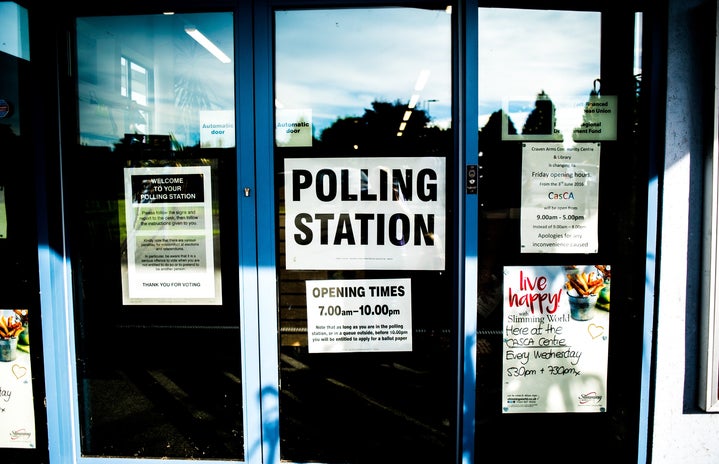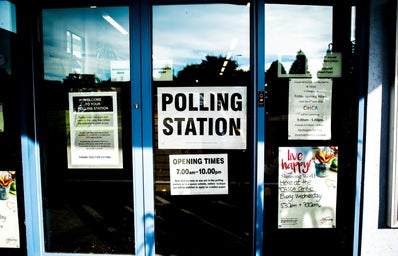Maia Sandu, Moldova’s first female president, elected in 2020, is making history on the far east end of Europe. So why is it that so few know of her and her many accomplishments at raising Europe’s poorest country out of the USSR’s rubble while keeping the country’s oligarchs and pro-Russian forces at bay?
Maia Sandu was born in 1972 in Risipeni, Moldova. Her father was a veterinarian, while her mother worked as a teacher. She has one sister and both Sandu girls are remembered by neighbours as very intelligent and hard working. In 1989, Sandu left her hometown to study at the Faculty of Management within the Academy of Economic Studies in Chisinau, until 1994. She then went on to study for another 3 years at the Academy of Public Administration under the Presidency of the Republic of Moldova, specialising in international relations. In the following years of her career she occupied several posts in Moldovan civil service. In 2009 she returned to school and in 2010 she graduated from the Kennedy School of Government at Harvard University in public administration. From there, she went on to serve as advisor to the president of the World Bank until 2012, when she chose to return to her home country to serve as Minister of Education. It was at this point that she solidified her anti-corruption position through the infamous introduction of cameras in classrooms in order to prevent cheating.
In 2014, she was elected to Parliament on the ballot of the Liberal Democratic Party of Moldova but continued as education minister until 2015. That year, Plahotniuk, an oligarch that bent the country’s politics in his favour, ingraining in the country its lack of rule of law and democracy, replaced the government with one under his control. At the end of 2015, Sandu launched her own Party of Action and Solidarity (PAS) on the grounds of fighting the corruption that swamped the country for the years since the fall of the USSR. As PAS leader, Sandu decided to run for president in 2016, basing her campaign on true pro-European and anti-corruption values. She obtained 47.89% in the second round, losing by only a small margin to Igor Dodon, a pro-Russian candidate supported by Plahotniuk. In fact, there have been questions raised about the fairness of these elections and speculations that Sandu would win in 2016 if it hadn’t been for unconstitutional political machinations of Plahotniuk. As the leader of the opposition, Sandu became Prime Minister for a short but very crucial period of 5 months in June 2019. She made it a point to surround herself with knowledgeable and competent women, appointing a majority of women as her ministers – something that is hard to find even in the consolidated democracies. Sandu navigated through a political crisis, and faced the threat of imprisonment throughout, which led to the flight of Plahotniuk. Her pro-reform government fell in November following a motion of censorship actively supported by Dodon.
Four years after her first attempt, in 2020, Sandu entered the presidential election against Dodon again. She had to face many political attacks on her pro-European orientation in addition to personal attacks centred around the fact that she is not married and doesn’t have children – a frowned-upon situation for a woman in the eyes of misogynists the likes of Dodon. Dodon’s efforts were, however, to no avail. Moldovan citizens had enough of his leadership, or, rather, lack there-of, and Sandu’s message resonated with them. Her genuine life-long commitment to the common good of the Moldovan people had made her their champion. Her partnership with the European forces who supported tangible improvements for those living in the countryside (through building roads, water supply, electricity) as well as the youth, through promoting education and innovation, ensured her a wide range of supporters. Another important stratum of the society that had her back were the diaspora, representing up to 1/3 of Moldova’s population. An unprecedented number of citizens living abroad voted for Sandu in hopes for a better future for them and their country – an important indicator of the change that Sandu represented. On Christmas Eve 2020, the citizens of Moldova got the best present they could have asked for – Maia Sandu was sworn in as first female president – an act that thankfully symbolised the end of an era for Moldova.
Although Sandu inherited the country in a catastrophic state and amidst the COVID-19 pandemic, she has stuck to her presidential promises and values. She remains very pro-European, citing her support for Moldova’s integration into the EU in the future, and on 19 April 2021 she signed the Council of Europe Action Plan for the Republic of Moldova 2021–2024 with the aim of reforming Moldova’s legislation and state institutions and introducing improvements on the country’s democracy, human rights and rule of law. Moldova’s strong ties to Romania – an EU member -(through language, culture, history and proximity) provide a good stepping stone towards Europeanisation. This relationship proved essential in the fight against COVID-19, as Moldova received donations of hundreds of thousands of vaccines from Romania. Additionally, Moldova became the first country in Europe to receive vaccines from the COVAX platform. Sandu and the new government formed by PAS also ensured resumption of foreign financial support to Moldova from development partners including the EU, IMF and the World Bank.
Maia Sandu truly is Moldova’s knight in shining armour, and by extension Europe’s as well. By having a pro-European President in a small country at the far east end of Europe which is so geopolitically important for both the EU and Russia, Russian political or military threats to Europe are held at bay.
**Maia Sandu haș been named one of Politico’s 28 most influential people of Europe in 2021, labeled as “the tightrope walker”.


